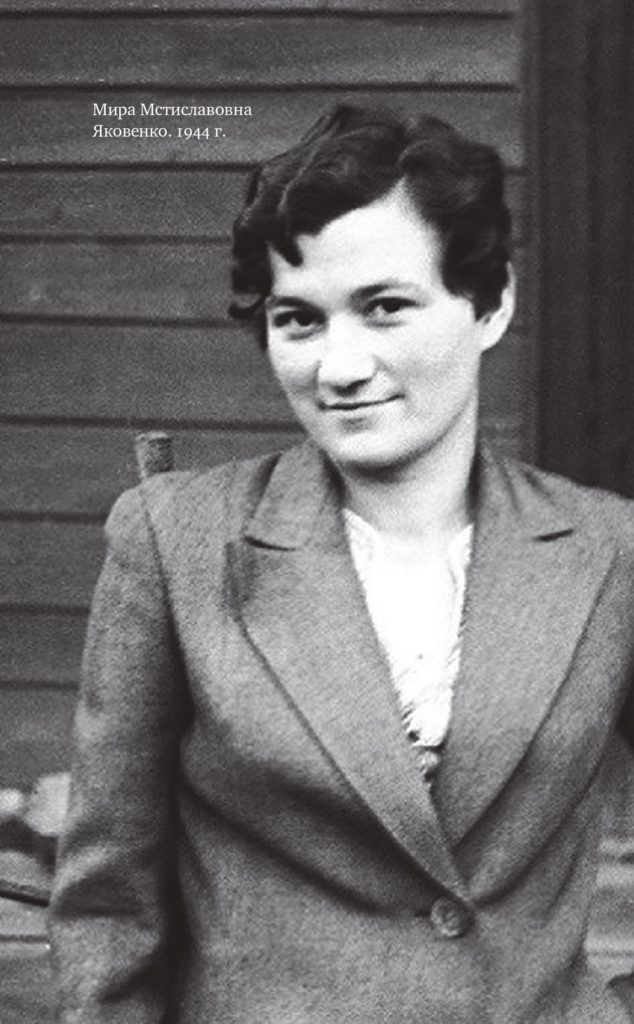(1917—2005)
Mira Yakovenko, a physicist by training, was not a professional writer. Rather, she was endowed with a gift for language. But, above all else, she was motivated by a profound interest in the fates of people who survived the Gulag.
Already at the end of the 1950s she began taking an interest in the stories of those who had been released from Stalin’s camps. During those years, she stood in line for hours at the USSR Procurator’s Office, the High Court, the War Tribunal, agitating for the rehabilitation of her relatives who had been persecuted, or “repressed,” as it is termed in Russian. She herself was descended from a family of the Ukrainian intelligentsia—academics and teachers. She listened to testimonies about former prisoners, told to her by others who were waiting, as she was, at the doors of these government offices. At that time, one could learn about the realities of Stalin’s camps only from the accounts of eyewitnesses, who had returned from those distant places years later. It was already clear, however, that only a very few had the courage and ability to describe what they had lived through. For this reason, Mira Yakovenko considered it vitally important to try to convey and transmit what the witnesses would have tried to tell.
There were, of course, no tape recorders at that time. But sometimes even taking notes by hand in the presence of the narrator was impossible. She feared, with some justification, that this would inhibit their forthrightness, their frankness. More often than not she jotted down everything she had heard when she got home, from memory. Later, she claimed that her writing was not so much historical witness, as literary notes; and that what she wanted most to achieve was a living story and a living narrator. The story of Agnessa Mironova was the apex of Mira Yakovenko’s achievement.
Books:

